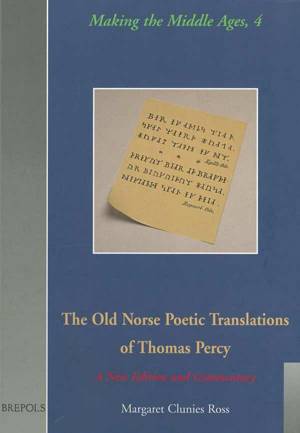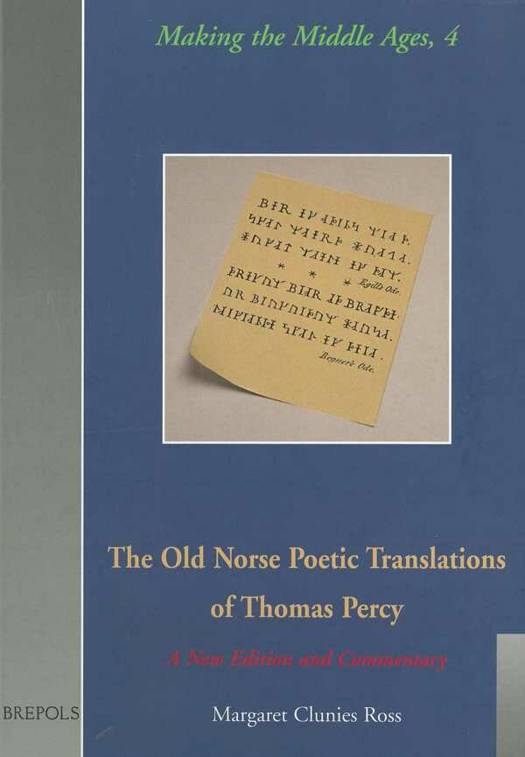
- Retrait gratuit dans votre magasin Club
- 7.000.000 titres dans notre catalogue
- Payer en toute sécurité
- Toujours un magasin près de chez vous
- Retrait gratuit dans votre magasin Club
- 7.000.0000 titres dans notre catalogue
- Payer en toute sécurité
- Toujours un magasin près de chez vous
The Old Norse Poetic Translations of Thomas Percy
A New Edition and Commentary
Margaret Clunies Ross
Livre relié | Anglais
61,45 €
+ 122 points
Description
Thomas Percy was the first serious translator of Old Norse-Icelandic poetry into English. He published his Five Pieces of Runic Poetry in London in 1763 and in 1770 published his translation of Mallet's very influential work on early Scandinavian literature and culture as Northern Antiquities (with extensive annotations and additions by Percy himself). In publishing Five Pieces, Percy was influenced by the success of Macpherson's first volume of Ossian poetry (1760) and his own wide-ranging interest in ancient, especially 'gothic' poetry. Five Pieces had a mixed reception and was never republished as a separate work, but reappeared as an appendix to the second edn. of Northern Antiquities. Nevertheless, it was a seminal work in the history of reception and understanding of Old Norse poetry in Britain and it also has more general significance in our understanding of the development of the discipline of Old Norse-Icelandic studies. This work makes available to the modern scholarly community the work of one of the pioneers of the discipline and produces in easily accessible format a text that is currently only available as a rare book. The study comprises a facsimile of the 1763 edition, with facing-page notes to allow the modern reader to situate Percy's work in its intellectual context, together with an introduction on Percy himself, his work on Old Norse-Icelandic studies, and the contemporary context of the reception of Old Norse poetry in Britain (and to some extent in the rest of Europe). In addition, this study publishes eight other poetic translations (one from Old English and the others from Old Icelandic) that Percy completed about the same time as the translations now in Five Pieces of Runic Poetry, but did not then publish, due to the restrictions of contemporary tolerance for demanding or difficult 'ancient' poetry. This publication reveals his full range as a translator for the first time.
Spécifications
Parties prenantes
- Auteur(s) :
- Editeur:
Contenu
- Nombre de pages :
- 304
- Langue:
- Anglais
Caractéristiques
- EAN:
- 9782503510774
- Date de parution :
- 20-03-02
- Format:
- Livre relié
- Format numérique:
- Genaaid
- Dimensions :
- 169 mm x 250 mm
- Poids :
- 825 g

Les avis
Nous publions uniquement les avis qui respectent les conditions requises. Consultez nos conditions pour les avis.






